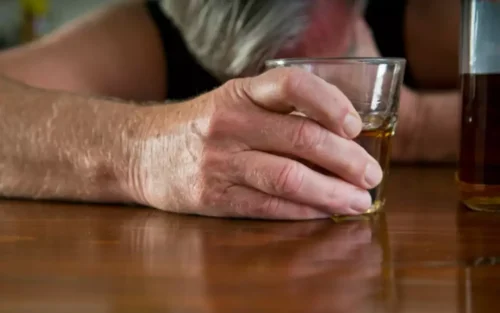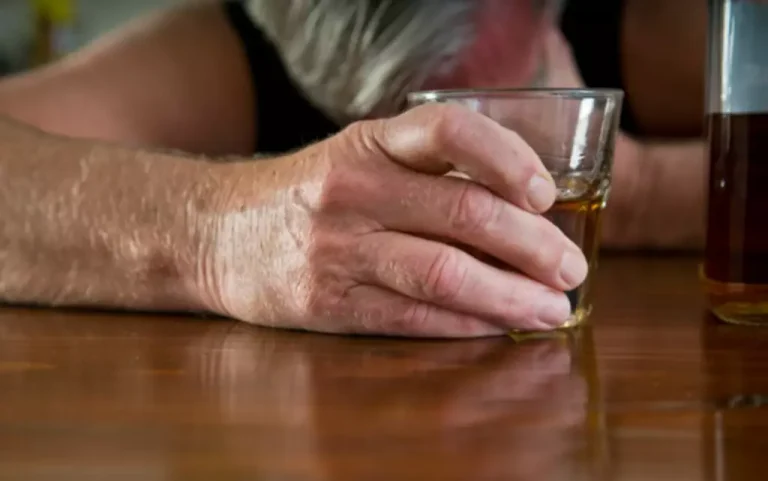PTSD and Alcoholism: How Does Alcohol Affect Post-Traumatic Stress Disorder?

Alcohol also interferes with REM sleep, which is important for processing emotions and memories, leading to more nightmares and poor-quality sleep. Alcohol abuse in people with PTSD often leads to dangerous risk-taking. Alcohol lowers inhibitions and clouds judgment, leading to reckless actions like driving drunk, unsafe sexual https://ecosoberhouse.com/ behavior, or even self-harm. Studies show that people with PTSD who abuse alcohol are more likely to have suicidal thoughts or attempts.
Combat Veterans With PTSD Are More Likely To Drink To Cope.

If you tend to use the substance (or use more of the substance) following triggers, such as contact with a perpetrator or on trauma anniversaries, this can also be a sign that your substance use is related to trauma. When trauma occurs earlier in life, the risk for substance use issues increases. Additionally, the more traumas a person has experienced, the more likely they are to develop issues with substances. Overall, we predict that, as compared with placebo, cannabidiol can result in greater reduction in subjective traumatic stress– and alcohol cue–induced craving and accompanying physiological stress response.
Center for the Study of Alcohol Use Disorder & Traumatic Stress Research
Trauma may also lead to risky behaviors, like binge drinking or self-medicating, to cope with the anxiety and fear linked to PTSD. Typically, the sessions are 60 to 120 minutes, approximately once a week for 4 to 10 weeks. People with complex post-traumatic stress disorder (CPTSD) often experience chronic emotional distress. Symptoms include emotional dysregulation, intense shame, and a negative self-concept due to prolonged exposure to trauma.
Symptoms of PTSD and Alcohol Use Disorder Differ by Gender.
After traumatic experiences, it is common for suffers of trauma to experience helplessness, suicidal thoughts, aggression, self-harm, depression and anxiety. Once people experience traumatic circumstances, they can also develop guilt and shame which can manifest in alcohol and/or drug dependency. Alcohol dependency can worsen PTSD symptoms and create uncomfortable side effects.
Shared decision-making, which uses a patient-centered, collaborative approach that includes the treatment team and the Veteran, should be used to make informed treatment decisions that align with the patient’s goals and values (35). Because there is no single level of care or evidence-based treatment that is recommended for all Veterans, using shared decision-making allows for tailoring of treatment and is a good way to best meet each Veteran’s unique circumstances. MBC can be used to assess progress and to integrate self-reported outcome data into the shared decision-making process.

Symptoms Of Alcohol Addiction

SoberBuzz is not just an organisation; it’s a lifeline for those who may be questioning their relationship with alcohol and are seeking guidance on how to navigate this journey of change. At SoberBuzz, they understand the complexities and challenges that can arise when re-evaluating your connection with alcohol. They offer a safe, non-judgmental haven where you can openly share your experiences, be heard, and find unwavering support. And sometimes alcohol usage disorders are simply a comorbidity that appears alongside PTSD, without one necessarily causing the other. Traumatic events can be a single event, like a car accident or traumatic death of a loved one, or a long-term stressor, like living in an abusive household.
Integrated Behavioral Treatments
- Seeking professional support is a significant stride towards a healthier, brighter future.
- Safety measures, cognitive tasks, and psychomotor functions are assessed weekly throughout the study.
- Treatment providers can connect you with programs that provide the tools to help you get and stay sober.
- Also needed is examination of how adding PTSD-focused treatment to AUD treatment will be feasible in terms of treatment costs, training requirements, and staff workload.
- Alcohol increases feelings of anxiety, depression, and irritability in people with PTSD.
The Recovery Village is experienced in treating alcohol and other substance use and co-occurring disorders like PTSD. Some studies have indicated that people who are diagnosed with PTSD and abuse alcohol may drink in an attempt to experience positive emotions. Alcohol use may improve their mood ptsd and alcohol abuse but is more likely to temporarily numb negative feelings followed by more serious negative feelings as the effects wear off.
Measurement based care (MBC; 29) or the use of patient-reported information collected as part of routine care, can be used to inform clinical care and shared decision making, individualize treatment, and assess progress toward recovery goals. The PTSD Checklist for DSM-5 (PCL-5) and the Primary Care PTSD Screen for DSM-5 (PC-PTSD-5) are evidence-based measures that screen for PTSD. The PCL-5 is offered in past-month and past-week versions and provides PTSD symptom severity.
Do People Use Alcohol to Cope with PTSD?
- It will help you process trauma, stop drinking, and learn new, healthier coping mechanisms going forward.
- People with both conditions often report experiences of repeated childhood sexual and physical abuse and have complex treatment needs.
- Participants are encouraged to obtain a sponsor who will serve as a source of practical advice and support during recovery.
- Finally, individual preference is a critical consideration when matching people with treatment modalities.
- Complex trauma and AUD are often intertwined, as childhood trauma increases the risk of developing AUD.
- For example, Concurrent Treatment of PTSD and Substance Use Disorders Using Prolonged Exposure (COPE) integrates Prolonged Exposure therapy for PTSD with relapse prevention for SUD.
Dedicate a moment each day, whether in the morning or at night, to jot down five things you’re grateful for. This practice will help you shift your focus towards self-compassion, nurturing a positive outlook on your journey. At PTSD UK, we are excited to join forces with SoberBuzz to extend our support to people dealing with PTSD or C-PTSD who are seeking to take control of their alcohol consumption. The valuable hints and tips that follow are a result of our partnership with SoberBuzz, aimed at empowering you on your path to well-being. The first step in addressing problematic drinking is to redefine what it entails. By removing traditional stereotypes, we can encourage people to recognise that their relationship with alcohol deserves attention and care.
How To Address and Heal From Trauma That Contributed to Alcohol Use
It can be difficult to ask for help, but know that you deserve support and care. If you notice an increase in your substance use following a traumatic event, your substance use may be related to the trauma. If you find yourself using the substance to cope with trauma triggers or memories, there may be a connection between your trauma and substance use.
